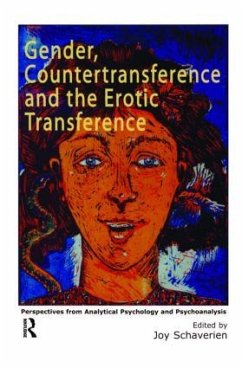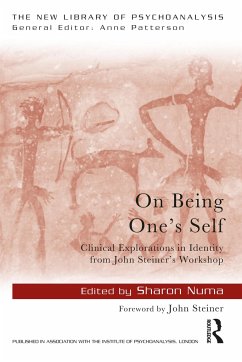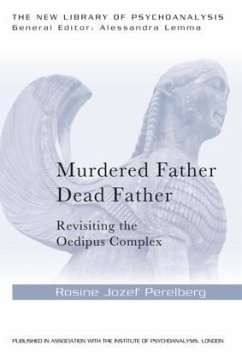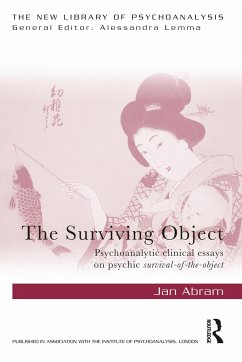
The Psychoanalyst's Superegos, Ego Ideals and Blind Spots
The Emotional Development of the Clinician
Versandkostenfrei!
Versandfertig in 6-10 Tagen
37,99 €
inkl. MwSt.
Weitere Ausgaben:

PAYBACK Punkte
19 °P sammeln!
Psychotherapists and psychoanalysts enter an emotional relationship when they treat a patient; no matter how experienced they may be, their personalities inform but also limit their ability to recognise and give thought to what happens in the consulting room. The Psychoanalyst's Superegos, Ego Ideals and Blind Spots investigates the nature of these constrictions on the clinician's sensitivity.Vic Sedlak examines clinicians' fear of a superego which threatens to become censorious of themselves or their patient and their need to aspire to standards demanded by their ego ideals. These dynamic for...
Psychotherapists and psychoanalysts enter an emotional relationship when they treat a patient; no matter how experienced they may be, their personalities inform but also limit their ability to recognise and give thought to what happens in the consulting room. The Psychoanalyst's Superegos, Ego Ideals and Blind Spots investigates the nature of these constrictions on the clinician's sensitivity.
Vic Sedlak examines clinicians' fear of a superego which threatens to become censorious of themselves or their patient and their need to aspire to standards demanded by their ego ideals. These dynamic forces are considered in relation to treatments which fail, to supervision and to recent innovations in psychoanalytic technique. The difficulty of giving thought to hostility is particularly stressed.
Richly illustrated with clinical material, this book will enable practitioners to recognise the unconscious forces which militate against their clinical effectiveness.
Vic Sedlak examines clinicians' fear of a superego which threatens to become censorious of themselves or their patient and their need to aspire to standards demanded by their ego ideals. These dynamic forces are considered in relation to treatments which fail, to supervision and to recent innovations in psychoanalytic technique. The difficulty of giving thought to hostility is particularly stressed.
Richly illustrated with clinical material, this book will enable practitioners to recognise the unconscious forces which militate against their clinical effectiveness.














